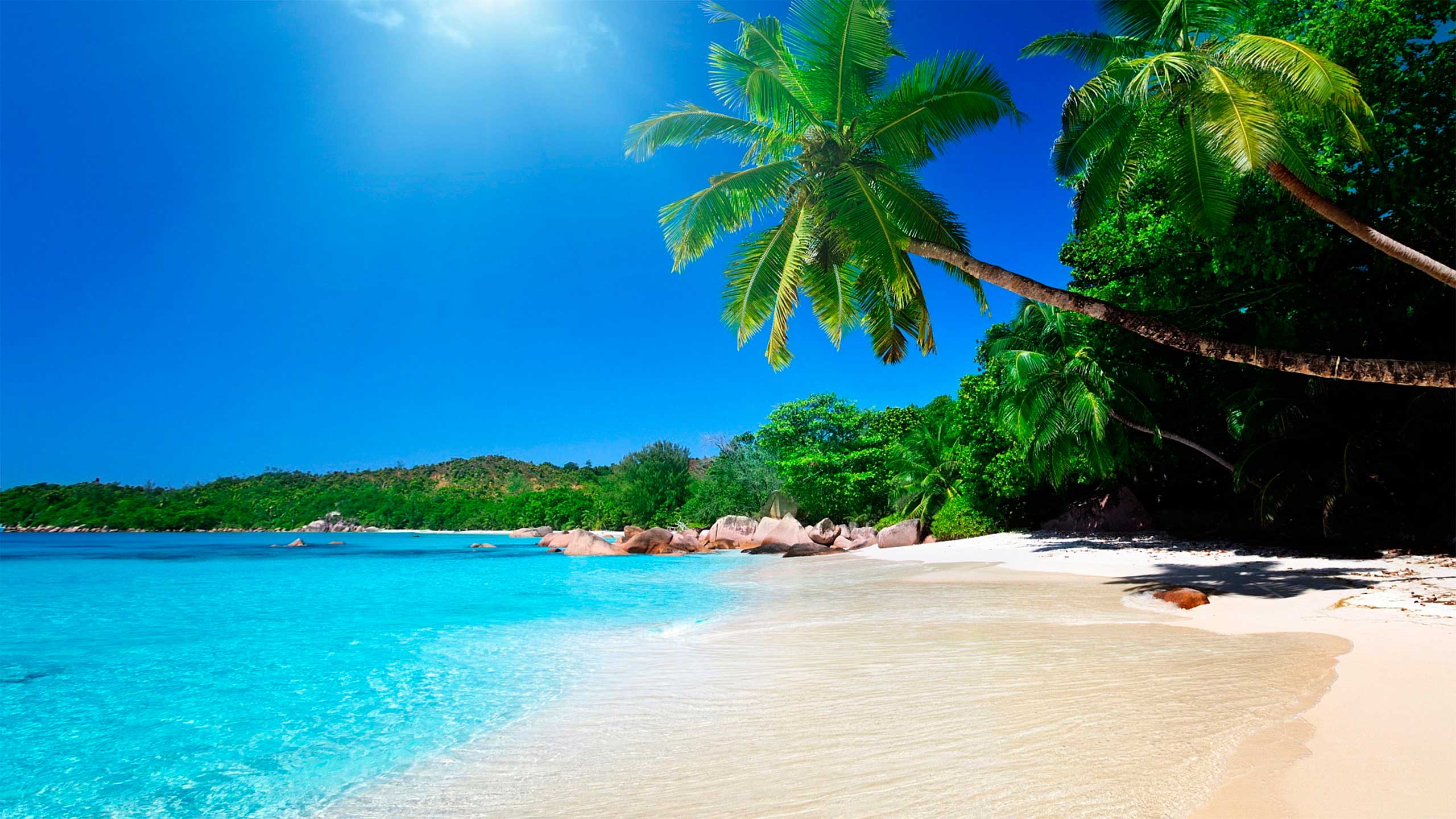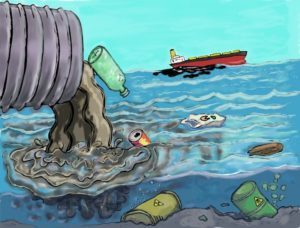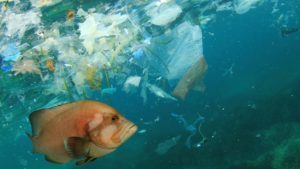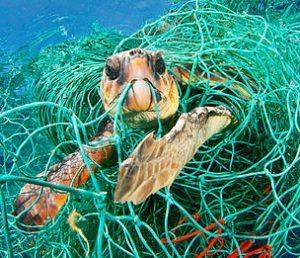Costa Rica is a wonderful ecological paradise, but we all have to be on the alert for avoiding environmental problems that affect its eco-health. Beginning with the contamination of rivers with agrochemical products, overexploitation of fishing and marine resources.
In this article, we are going to tackle the problem of pollution and suggest preventive measures so as to raise awareness.

Marine pollution.
It is the result of the pollution of the oceans. Until the 1970s, there was a popular belief that due to a large amount of water in the oceans, it had the capacity to dilute all pollutants without causing environmental consequences. During those years all kinds of chemicals, untreated sewage, and even radioactive waste were dumped into the seas, in the hope that they would disappear into the deep blue.
However, far from diluting, these pollutants have been accumulating both in the water and in trophic chains; in addition, they have managed to spread throughout the planet reaching places where human activity is not so present, like the Marianas or Antarctica. For this reason, we have long celebrated World Oceans Day to raise awareness about the problem and help improve the situation.
Causes of marine pollution. They are diverse and numerous:
Pesticides and herbicides. Although mainly used on land, they can reach the seas through rivers and groundwater. The populations of phytoplankton, algae and marine plants can decrease, causing a lowering in the dissolved oxygen of the water. In addition, they can bio accumulate in the tissues and go up in the trophic chain, as well as cause alterations in behavior and reproduction producing damage to the immune, endocrine and neurological systems of animals (crustaceans, fish, mammals, birds).

Fertilizers and detergents. Both cause nutrient enrichment of the waters (eutrophication) since they are mainly composed of nitrogen (fertilizers) and phosphorus (fertilizers and detergents). When these reach the masses of water, algae that live in them begin to grow and form layers of biomass that prevent the entry of sunlight and the renewal of oxygen, therefore, making life impossible in these atrophied areas.
Chemical products.
All kinds of chemicals can be found in the ocean as a result of intentional dumping or transport from the continents and coasts. This range extends from industrial heavy metals and radioactive waste drugs and hormones, among others. The effects of these substances are death by poisoning in the most extreme cases, the appearance of malformations, various metabolic and behavioral disorders and bioaccumulation in the trophic chain, which can eventually reach us.
Hydrocarbons.
They reach the ocean through industrial discharges, the drainage of continental waters or other human activities (fishing boats, boats, cruises, etc.). When an oil spill occurs
the entrance of sunlight is blocked affecting the behavior and physiology of organisms that die and decompose in a cumulative matter.
Sewage water. In many cases, wastewater from towns and industries is discharged without any control. This favors eutrophication due to the enrichment of waters with the organic and nutrient matter, as well as the entry of chemicals and even microorganisms and parasites, destabilizing aquatic communities and increasing the level of water toxicity.
Plastics and micro plastics.

One of the most polluting elements of the planet. Plastics can cause wounds, malformations, and amputations in animals when they get caught in some part of the body. Large plastics (bags, straws, bottles) are confused with food by animals. Its intake causes the obstruction of the airways so fish and sea birds die by asphyxiation, in other cases; they are entangled in the stomach and intestines so the animal ends up dying being unable to feed or to expel them. Micro plastics (plastics under 5 mm) such as nurdles (raw materials for the manufacture of plastics), glitter, cosmetics microspheres and other small fragments of plastic have been found in the digestive systems of fish, birds and even humans as a result of the movement of these by the trophic chain.
But the problem of plastics goes much further, being organic compounds they are able to absorb toxins from the environment, so once ingested accumulate in the tissues and move through the food chain.
Ghost Fishing Nets.
They are those fishing nets that are lost or thrown into the sea. When left adrift, animals such as turtles, birds, dolphins, and sharks become entangled in them becoming the nets their executioners. They can cause large wounds, lacerations, and death because animals cannot move and escape.

Acoustic pollution The sound coming from sonars, submarines, ships and oil and mining installations can be transmitted many kilometers from its point of origin, this directly affects large mammals such as whales, porpoises or dolphins that use ultrasound to migrate, feed, reproduce or communicate.
Plastic islands. As a result of plastic pollution, islands made entirely of plastic have emerged. The Great Pacific Garbage Patch was discovered in 1997 and occupies an area larger than that of Spain, France, and Germany together, it is located between Hawaii and California and it is estimated that its weight would amount to 80,000 metric tons. In addition, in recent years several other patches have been detected, in the southern Pacific Ocean near the coasts of Chile and Peru, and another in the northern Atlantic Ocean near the US coasts. These plastic islands are maintained by the existence of a vortex created by circular oceanic currents.
Important tips to create awareness and help conserve our natural resources.
When we take care of the environment anywhere we take care of our environment everywhere. This means that, for example, the recycling of garbage, the replacement of traditional paper sheets by the ecological paper, not using plastic materials, etc., are positive actions for all the environment. The same thing happens with the cleaning of the oceans and beaches. When we spend a few days in these places, they become our everyday environments. We can take care as we use them without generating any kind of extra limitations on ourselves, just being aware and careful.
If you visit a beach recollect all the trash generated neatly, this way when leaving, dispose of it only inadequate containers. Do not pour liquids of any kind into the sea. If you smoke, accumulate cigarette butts in a non-flammable container. Take them away from the beaches. The butts are not biodegradable and can stay up to two years in the sand.
When showering use fresh water only in limited quantities and in necessary circumstances. If you cannot walk to the beach, try using ecological means of transport. Do not go fishing in areas where it is not allowed. If you like diving, do not to touch or alter any animal or plant. We must respect them, and let them live in peace. We can observe how they move, how they relate, but not touch them.
You can join an ocean conservation program. Write to your local legislators and request the development of policies dedicated to the treatment of ocean litter. You can also participate in coastal cleanup campaigns. You can write to different companies and require them to readjust the methods used to pack their merchandise. You can suggest what kind of materials to implement.
We have to respect the environment that surrounds us. So basically: do not tear up plants, do not disturb animals, and do not dirty the beaches. And when leaving and packing up all our stuff, cleaned the beach in the area we occupied during the day.
